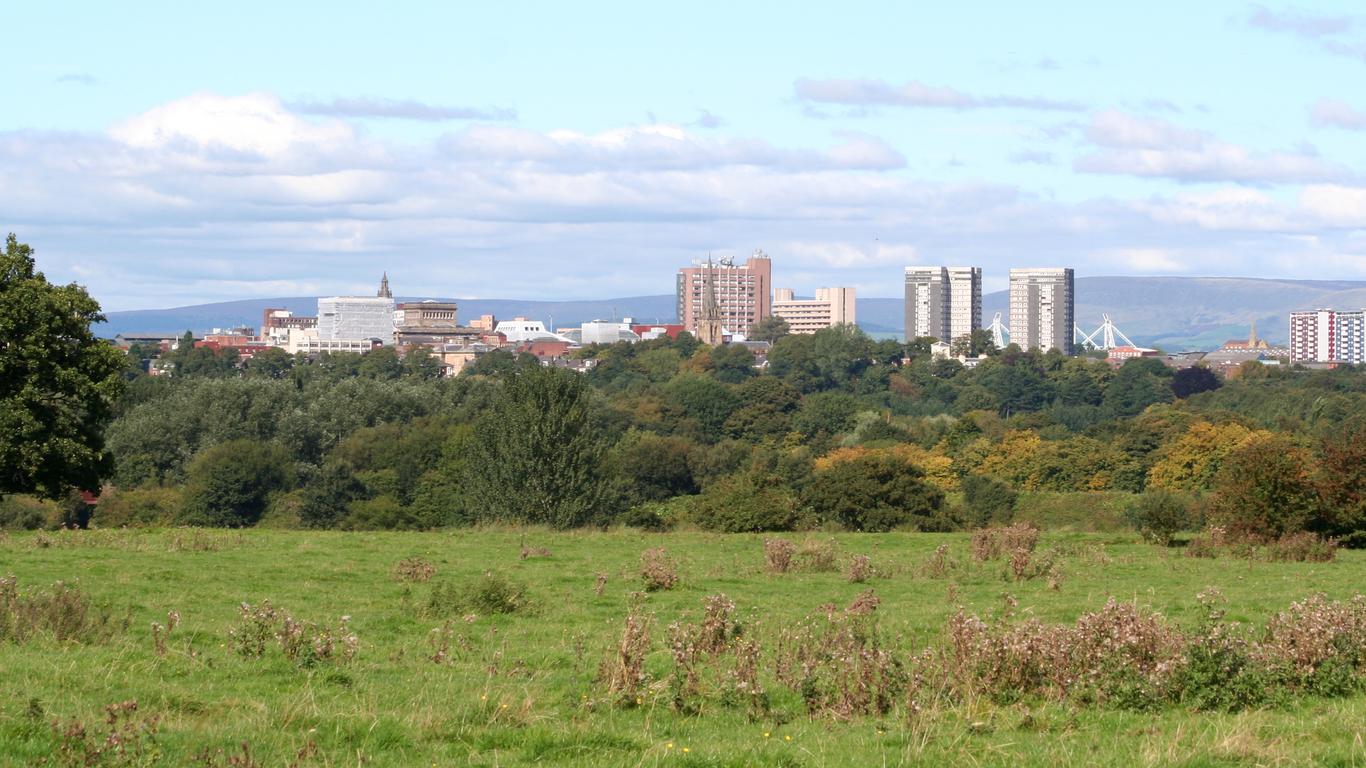Located on the banks of the River Ribble, Preston is a lively Lancashire city with a long history of textile manufacturing. It flourished during the Industrial Revolution and is known locally as “The Gate”, with an outstanding museum and a scenic railway among its attractions.
Things to do in Preston
Occupying a Neo-Classical building fronted by columns is The Harris, a museum, art gallery and library that opened to visitors in 1893. It houses an extensive collection of oil paintings by leading British artists, as well as ceramics and glassworks. In the history galleries, you’ll find a 13,500-year-old skeleton of an Ice Age elk, together with vintage costumes and textiles.
Don’t miss a ride on the Ribble Steam Railway, which runs along the edge of the historic Preston Docks. The journey takes you across an impressive swing bridge, with sweeping views of Preston’s city skyline along the way. At the Riverside Station is a museum where old locomotives and rolling stock are displayed, as well as exhibits detailing the impact of industrial railways on everyday life.
Hugging the River Ribble in Preston’s south is Avenham Park, a heritage-listed green space designed by the English landscape architect Edward Milner in the 1860s. In addition to a peaceful Japanese garden, it features an ornate pavilion known as The Belvedere. Adjacent lies Miller Park, which is named after a local cotton manufacturer who donated the land. It boasts a central fountain and an artificial grotto, as well as a statue of the former British prime minister, Edward Smith-Stanley.
Getting around Preston
Preston is about a one-hour drive from the centre of Manchester and 45 minutes from Manchester Airport while Leeds Bradford Airport is 1.5 hours away. Trains connect to the Preston railway station and buses travel throughout the city.





